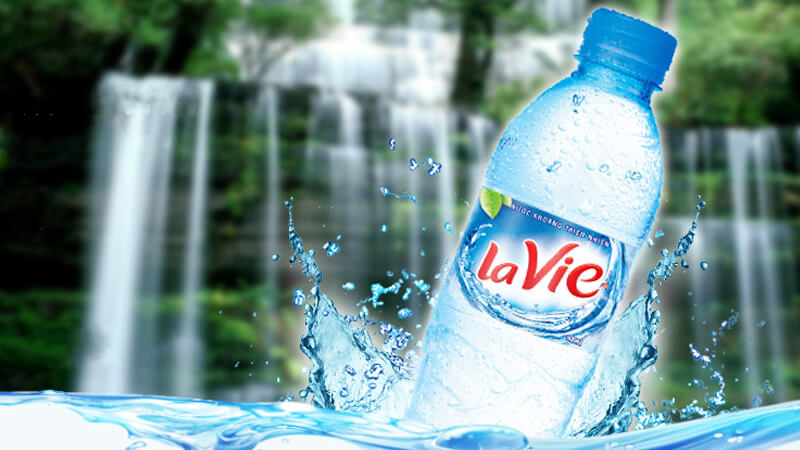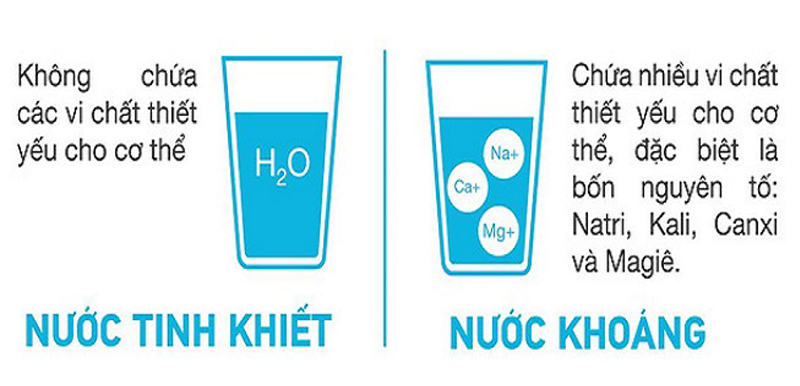Many people don’t realize there is a difference between bottled water and mineral water. They are often referred to interchangeably as “spring water,” but there are distinct variations between the two. So, what are these differences, and which is better for daily consumption? Are you curious to find out more?
1 Are Mineral Water and Spring Water the Same?
Essentially, both are bottled waters that can be consumed directly and are safe for the body. However, their nature and composition differ.
There are two types of mineral water:
– Natural mineral water flows through geological layers containing natural elements, gases, and mineral compounds. It is bottled at the source without any treatment to preserve its natural mineral content.
– Mineral-fortified water is created by adding minerals artificially through RO membrane filters or Nano filters that retain natural minerals present in the water.

On the other hand, spring water typically undergoes sterilization processes to treat natural water sources (well water, spring water, etc.) and make them safe for direct consumption.
Visual distinction: Both spring and mineral water are colorless. However, mineral water will show tiny air bubbles when gently shaken, and you’ll see a slight fizz when poured into a glass. This is not the case with purified or regular spring water.
2 Mineral Water vs. Spring Water: Which Is Better for Daily Consumption?
Regular spring water is simply purified water and does not contain the essential micro-nutrients that our bodies need. Consuming only this type of water daily can lead to mineral deficiencies and fluid imbalances in the body, affecting the development of teeth, bones, muscles, and even the function of the nervous system.
Mineral water, on the other hand, is rich in trace elements and essential minerals. However, excessive consumption of mineral water as a replacement for regular water is not advisable for individuals with high blood pressure, neurological disorders, or kidney disease.

The human body obtains minerals and water through its diet, including food and beverages. Therefore, it is crucial to maintain a balanced and diverse diet while also ensuring an adequate intake of safe and clean water. This combination will provide the body with the best possible nutrition, including water, micro-nutrients, and minerals.
Some reputable brands of purified bottled water available in the market include Dasani, Evian, and Lavie, among others.
If you are looking for a specific type of water to consume daily, the best advice is to opt for safe and clean water. You can alternate between spring and mineral water, but the most important factor is ensuring you drink enough water throughout the day.














